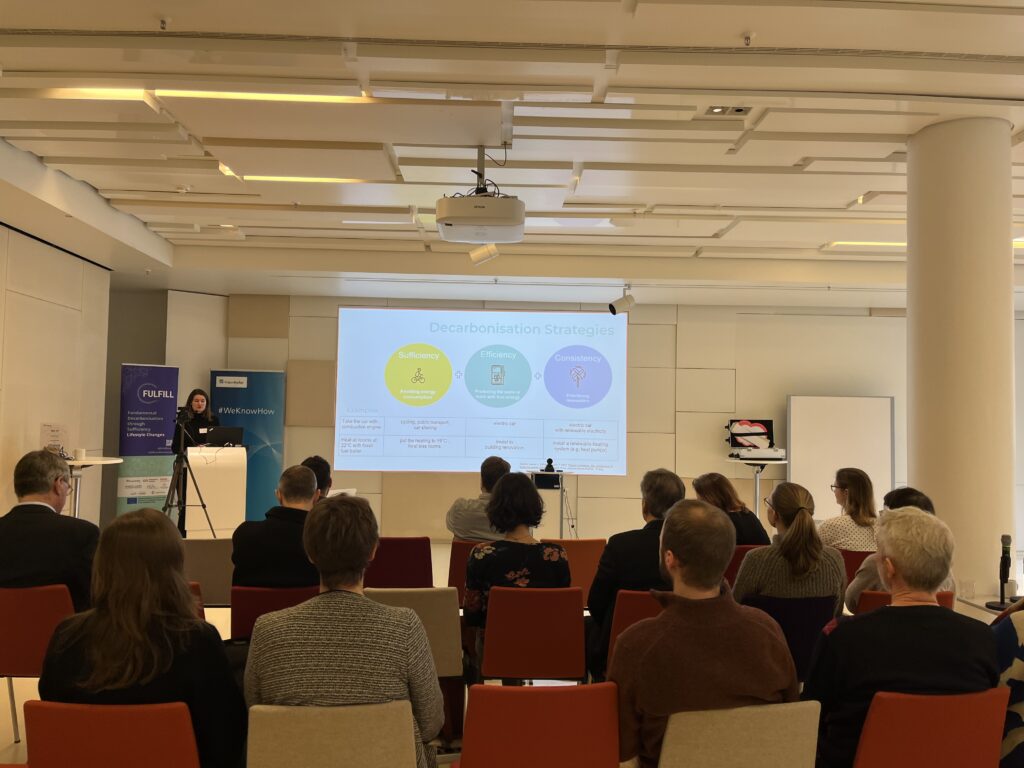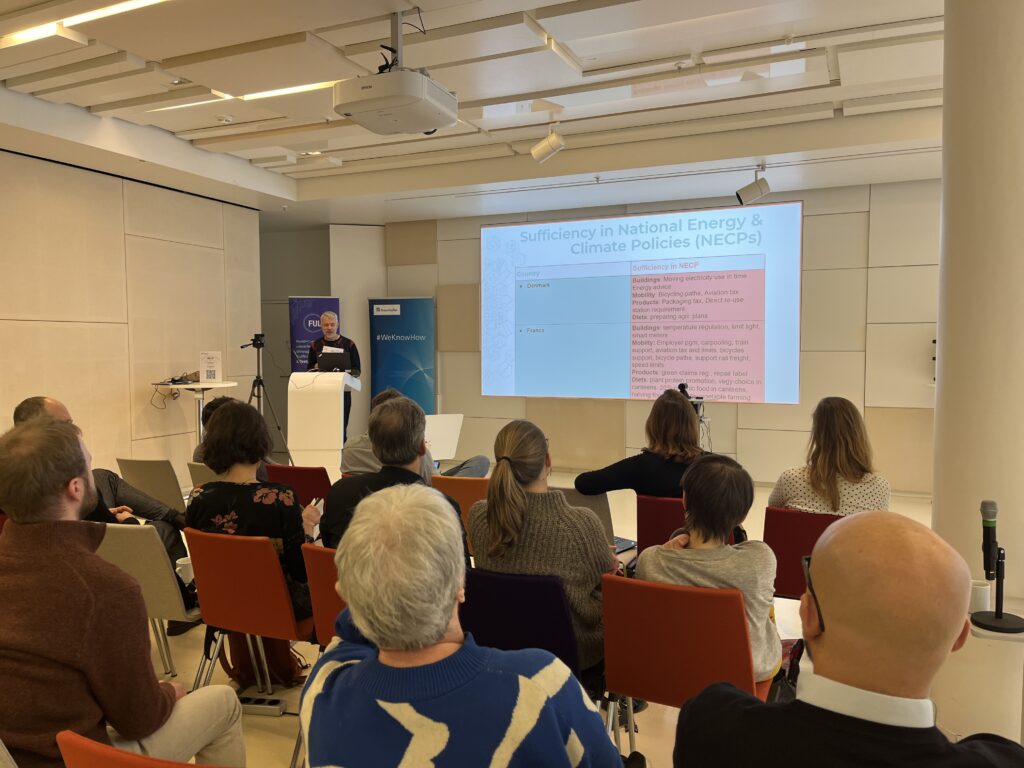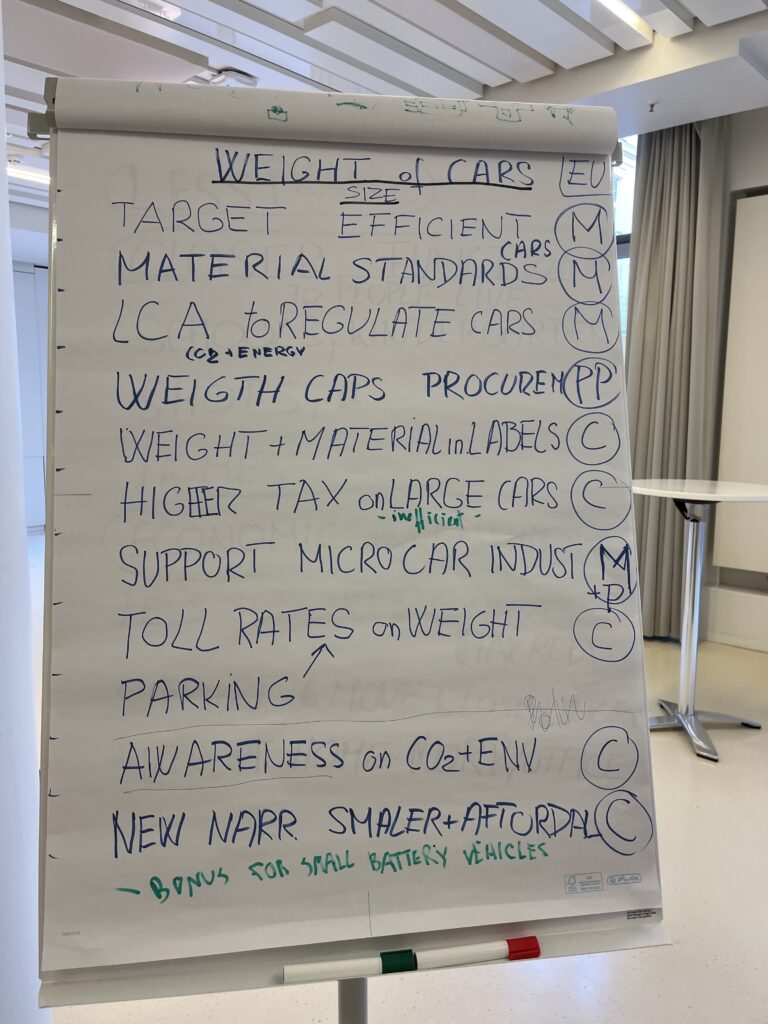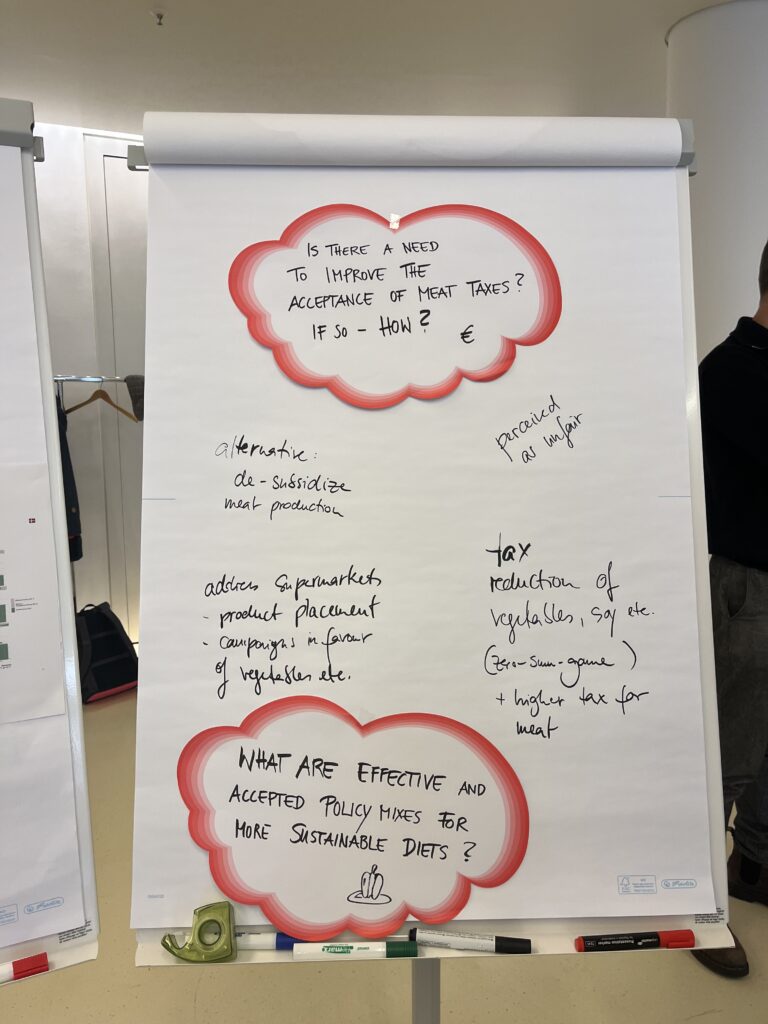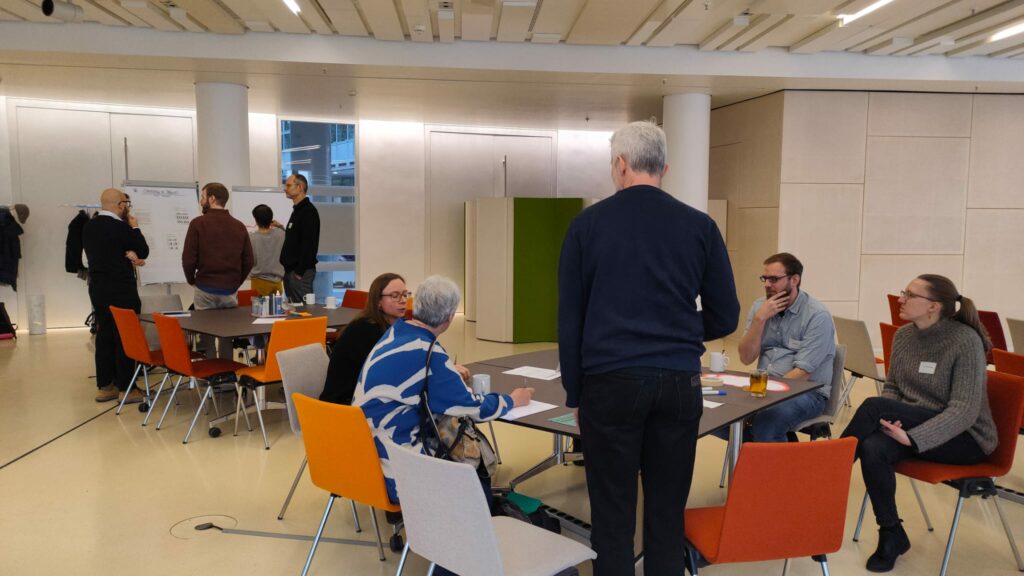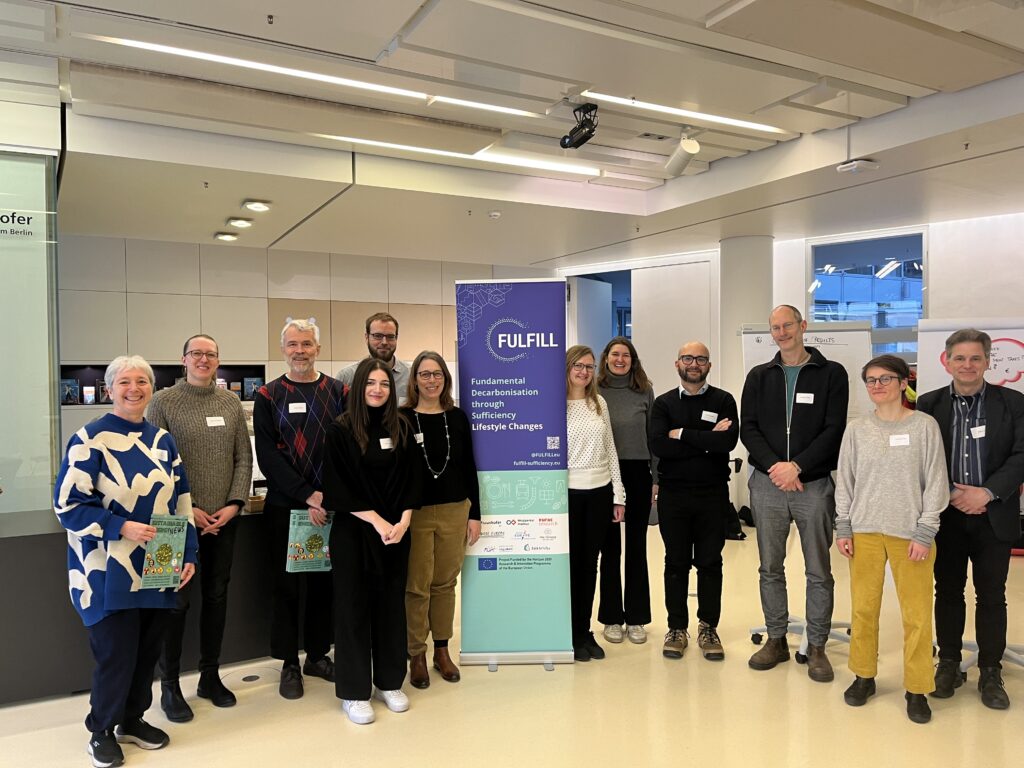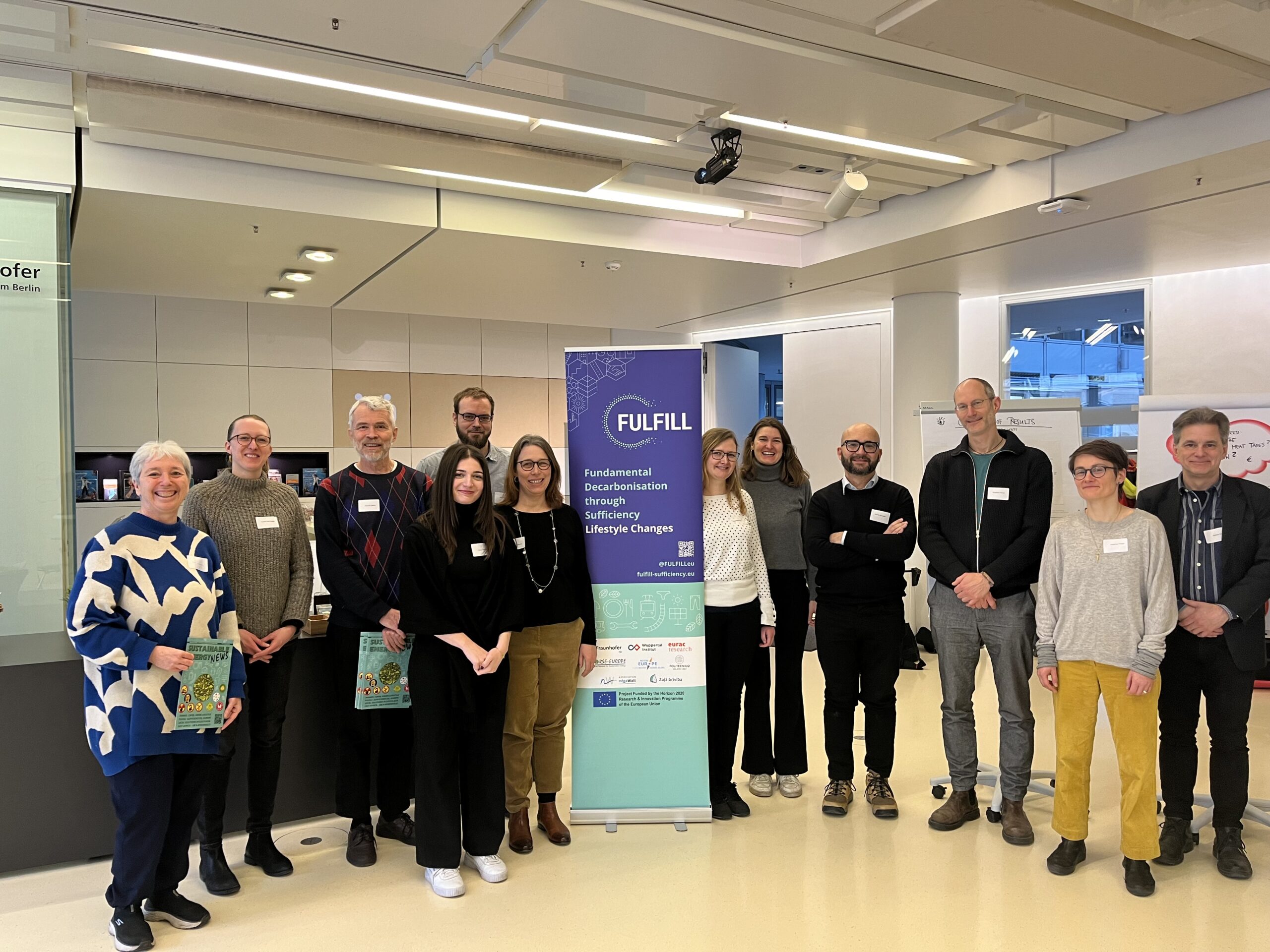FULFILL recently held its second expert roundtable on sufficiency on January 30th, 2024 in Berlin, Germany!
The roundtable brought together experts, researchers, and academics from across Europe to discuss sufficiency policies.
The event began with a networking breakfast, followed by presentations from different project consortium members.
First, Fiona Breucker from the Jacques Delors Institute presented the role of sufficiency in the energy transition and how we discuss it in the context of the project FULFILL.
This was then followed by a presentation from Yves Marignac from the négaWatt Association about sufficiency objectives and an outlook on the current development of sufficiency policies, with specific examples of car sizing and change of diet.
Then, Elisabeth Dütschke from Fraunhofer ISI spoke about the current acceptance of sufficiency policies, emphasizing research based on a survey with several thousand Europeans conducted as part of the project.
Lastly, Gunnar Olesen from INFORSE Europe compared sufficiency in European and national climate policies with sufficiency policies identified in the project’s research.
After these presentations, we had the pleasure of hearing from our guest speaker, Dr. Frank Siebern-Thomas, head of unit of the Fair Green and Digital Transitions unit at DG Employment, sharing insights about the current policy context for sufficiency from the perspective of the European Commission.
Next, participants split into two different groups focusing on food and transport.
At the food table led by Fraunhofer ISI, participants discussed the acceptability of policies such as carbon labeling, veggie days in public canteens, and higher VAT on meat. They also came up with some communication strategies for policies with high effectiveness but low acceptance levels.
At the transport table led by INFORSE-Europe and the Wuppertal Institute, participants discussed policies such as a cap on the weight/size of cars, urban planning to reduce the need for personal transport in cities, higher taxation of high-emission transport methods, and lower tax subsidies for long-distance commuting.
Finally, the event concluded with closing words from the consortium members and a networking lunch. A big thank you to all of the participants for their fruitful discussions and important insight!
Check out some of the photos and results below!
